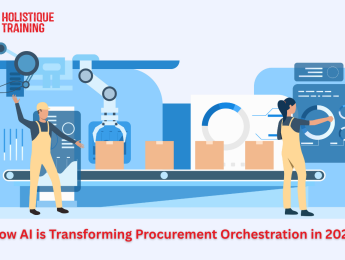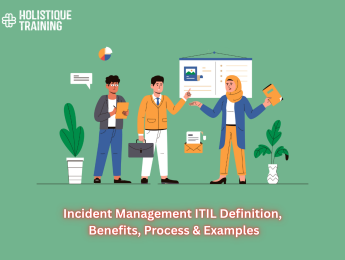- Table of Contents
- Introduction
- Understanding the Role of Business Consultants
- Benefits of Having a Construction Business Consultant
- Strategic Planning:
- Cost Management:
- Risk Mitigation:
- Operational Efficiency:
- Market Insights:
- Resource Optimisation:
- Stakeholder Management:
- Strategic Partnerships:
- Change Management:
- Continuous Improvement:
- Choosing the Right Business Consultant: What to Look For
- 1. Industry Experience:
- 2. Reputation and References:
- 3. Customisation and Flexibility:
- 4. Communication and Collaboration:
- 5. Results-Oriented Approach:
- 6. Cost-Effectiveness:
- 7. Cultural Fit:
- 8. Expertise in Key Areas:
- 9. Track Record of Innovation:
- 10. Long-Term Relationship:
- Small Construction Businesses vs. Large Construction Companies: Who Needs a Consultant More?
- Small Construction Businesses:
- Large Construction Companies:
- How to Become a Construction Business Consultant
- Educational Foundation:
- Industry Experience:
- Specialised Training:
- Networking and Mentorship:
- Continuous Learning:
- Business Development Skills:
- Domain Expertise:
- Problem-Solving Abilities:
- Communication and Presentation Skills:
- Ethical Conduct and Professionalism:
- Mastering the Top Skills of Construction Consultants
- Analytical Thinking:
- Problem-Solving:
- Communication:
- Leadership:
- Negotiation:
- Technical Expertise:
- Adaptability:
- Client Relationship Management:
- Project Management:
- Business Acumen:
- How Much Do Construction Consultants Make?
- In Conclusion
Introduction
Navigating the intricate landscape of the construction industry demands more than just brick-and-mortar expertise. In the ever-evolving realm of commerce, businesses often seek the guidance of consultants to thrive amidst challenges and seize opportunities. Enter construction business consultants—the strategic architects behind the success stories of many construction firms. Let's delve into the realm of these unsung heroes and uncover why they're indispensable in today's construction ecosystem.
Understanding the Role of Business Consultants
In the vast tapestry of commerce, where every decision carries weight and every strategy shapes the future, businesses often find themselves at crossroads, seeking direction amid uncertainty. This is where business consultants step in – as the guiding compasses navigating organisations through turbulent waters and towards the shores of success.
At its essence, the role of a business consultant transcends mere advisory; it embodies a partnership forged in the fires of expertise and experience. These professionals serve as the architects of change, the sculptors of strategy, and the custodians of progress. Their mandate extends beyond the confines of a boardroom; it encompasses the entire spectrum of a company's operations, from its inception to its expansion, from its challenges to its triumphs.
In the context of the construction industry, the role of business consultants takes on a multifaceted dimension. They are the custodians of construction companies' aspirations, entrusted with transforming vision into reality. Their canvas is the construction site, their tools are the blueprints, and their masterpiece is a thriving, sustainable enterprise.
Akin to skilled craftsmen, construction business consultants bring many skills and insights to the table. They possess a deep understanding of the intricacies of the construction trade – from project management to supply chain logistics, from regulatory compliance to risk mitigation. They are adept at deciphering the nuances of the market, identifying emerging trends, and capitalising on untapped opportunities.
But their role extends beyond mere technical proficiency; it encompasses a holistic understanding of the business landscape. They are adept at deciphering financial statements, analysing market data, and crafting strategies that balance ambition and prudence. They are the architects of change, guiding companies through organisational restructuring, technological innovation, and market expansion.
Moreover, construction business consultants are the custodians of accountability, entrusted with ensuring that projects are delivered on time, within budget, and to the highest quality standards. They are the guardians of efficiency, streamlining processes, optimising workflows, and eliminating bottlenecks that hinder progress. They are the catalysts of growth, identifying new revenue streams, forging strategic alliances, and propelling companies towards new horizons of success.
In essence, the role of construction business consultants transcends the confines of traditional advisory; it embodies a partnership built on trust, expertise, and a shared commitment to excellence. They are the silent architects of success, whose impact reverberates far beyond the confines of a construction site, shaping the future of an entire industry.
In the dynamic landscape of construction commerce, where every decision carries weight, and every action shapes the future, construction business consultants are the lighthouses guiding companies through the stormy seas of uncertainty towards the shores of success.
Key Performance Indicators (KPIs) | Description |
Project Completion Time | Ensure projects are completed within schedule. |
Cost Variance | Monitor and manage budget deviations effectively. |
Client Satisfaction | Measure and improve client satisfaction levels. |
Revenue Growth | Achieve consistent growth in revenue streams. |
Risk Mitigation | Identify and mitigate project-related risks. |
Table 1: Key Performance Indicators (KPIs) for Construction Business Consultants
Benefits of Having a Construction Business Consultant
In the dynamic world of construction, where every project is a symphony of moving parts, and every decision reverberates through the entire ecosystem, the role of construction business consultants stands out as indispensable. These seasoned professionals don't just offer advice; they orchestrate a symphony of strategies, innovations, and solutions, harmonising disparate elements into a crescendo of success. According to Growth Idea,the UK construction sector is expected to expand by 4.4%, with a projected value of £163,253 million by 2023, further validating the need for construction business consultants, especially for newly established companies. That being said, let's delve deeper into the manifold benefits construction consultants bring to the table:
Strategic Planning:
Construction projects are complex endeavours that require meticulous planning and foresight. Consultants bring a strategic perspective to the table, helping companies chart a course for success. By aligning business goals with market dynamics and industry trends, they develop comprehensive strategies that serve as guiding beacons amidst uncertainty.
Cost Management:
In an industry where every penny counts, effective cost management is paramount. Consultants leverage their financial acumen to optimise cost structures, streamline budgeting processes, and identify areas for savings. Implementing cost-effective solutions and negotiating favourable deals ensures projects remain financially viable from inception to completion.
Risk Mitigation:
Construction projects are fraught with risks, ranging from regulatory compliance to unforeseen delays and budget overruns. Consultants offer proactive risk management strategies to mitigate these risks, safeguarding projects from potential pitfalls. They provide peace of mind amidst uncertainty through thorough risk assessments, contingency planning, and compliance monitoring.
Operational Efficiency:
Efficiency is the lifeblood of any construction project. Consultants streamline workflows, eliminate bottlenecks, and introduce technology solutions to enhance operational efficiency and productivity. By optimising resource allocation, minimising downtime, and improving project coordination, they ensure projects are completed on time and within budget.
Market Insights:
Staying ahead of the curve is essential for success in a rapidly evolving industry. Consultants provide invaluable market insights, helping companies anticipate customer demands, identify emerging trends, and capitalise on lucrative opportunities. Companies can make informed decisions and stay ahead of the competition by analysing market data, conducting competitor analysis, and staying abreast of industry developments.
Resource Optimisation:
Efficient resource utilisation is key to maximising project profitability. Consultants optimise resource allocation, from manpower to materials, ensuring optimal utilisation and minimal wastage. Implementing lean principles, supply chain optimisations, and performance monitoring systems drive efficiency and profitability across the organisation.
Stakeholder Management:
Building and maintaining strong relationships with stakeholders are essential for project success. Consultants offer guidance on effective stakeholder engagement strategies, fostering trust, and collaboration. By facilitating open communication, managing expectations, and resolving conflicts, they ensure alignment and synergy among all project stakeholders.
Strategic Partnerships:
Strategic partnerships can unlock new opportunities for growth and expansion. Consultants help companies identify and forge strategic alliances with partners who complement their strengths and fill gaps in their capabilities. By facilitating partnerships with suppliers, subcontractors, and industry associations, they open doors to new markets, technologies, and opportunities for collaboration.
Change Management:
In an industry characterised by constant change, adaptability is key to survival. Consultants assist companies in navigating organisational transitions, whether it's implementing new technologies, restructuring operations, or adapting to regulatory changes. By providing change management expertise, training programs, and support mechanisms, they ensure smooth transitions and minimise disruption to operations.
Continuous Improvement:
Excellence is not a destination but a journey. Consultants foster a culture of continuous improvement by implementing performance monitoring systems, gathering feedback from stakeholders, and benchmarking against industry standards. By identifying areas for improvement, implementing best practices, and fostering a culture of innovation, they drive excellence and ensure long-term success.
In summary, construction business consultants are the architects of success, weaving together strategies, innovations, and solutions to drive growth, efficiency, and profitability in the dynamic construction world. Their expertise, insights, and guidance are indispensable assets for companies seeking to navigate the complexities of the construction industry and emerge victorious in an ever-changing landscape.
Choosing the Right Business Consultant: What to Look For
Selecting the right business consultant can be a pivotal decision for any construction company. It's not just about finding someone with the right credentials; it's about finding a partner who understands your unique challenges, shares your vision, and can guide you towards your goals. Here's what to look for when choosing a construction business consultant:
1. Industry Experience:
One of the most critical factors is the consultant's industry experience. Look for consultants with a proven track record of success in the construction sector. They should have hands-on experience working with construction companies similar to yours, understanding the intricacies of the industry and the challenges you face.
2. Reputation and References:
Reputation speaks volumes in the consulting world. Seek recommendations from trusted sources within the industry and ask for references from past clients. Look for consultants with a reputation for delivering results, building strong relationships with clients, and maintaining the highest standards of professionalism.
3. Customisation and Flexibility:
Every construction company is unique, with its own set of challenges and opportunities. Look for consultants who offer customised solutions tailored to your needs rather than adopting a one-size-fits-all approach. They should be flexible and adaptable, willing to listen to your concerns and collaborate to develop strategies that align with your goals.
4. Communication and Collaboration:
Effective communication is essential for a successful consulting engagement. Look for consultants who prioritise transparency, accessibility, and open dialogue. They should respond to your inquiries, inform you of progress, and actively seek your input. Collaboration is key to success, so choose a consultant who values teamwork and partnership.
5. Results-Oriented Approach:
Ultimately, you're hiring a consultant to help you achieve specific goals and objectives. Look for consultants with a results-oriented approach and a track record of delivering tangible outcomes. They should be able to demonstrate how their strategies have led to increased profitability, improved efficiency, or other measurable benefits for their clients.
6. Cost-Effectiveness:
While cost should not be the sole determining factor, it's essential to consider the consultant's fees and how they fit within your budget. Look for consultants who offer fair and transparent pricing and clearly understand the value they provide. Consider the return on investment you expect from their services and weigh it against the cost.
7. Cultural Fit:
Consulting engagements can be long-term partnerships, so it's crucial to consider the consultant's cultural fit with your organisation. Look for consultants who share your values, ethics, and work style. They should be able to integrate seamlessly into your team, building trust and rapport with your employees at all levels.
8. Expertise in Key Areas:
Depending on your specific needs, you may require expertise in certain areas, such as project management, risk analysis, or regulatory compliance. Look for consultants who deeply understand these key areas and can offer specialised knowledge and skills to address your challenges effectively.
9. Track Record of Innovation:
The construction industry constantly evolves, with new technologies, methodologies, and best practices always emerging. Look for consultants with a track record of innovation and staying ahead of the curve. They should be able to introduce cutting-edge solutions and strategies to help you remain competitive in a rapidly changing landscape.
10. Long-Term Relationship:
Building a successful consulting relationship takes time and effort. Look for consultants committed to establishing a long-term partnership with your company rather than just completing a one-off project. They should be invested in your success and willing to provide ongoing support and guidance as your business evolves.
In short, choosing the right business consultant is a critical decision that can significantly impact the success of your construction company. By considering factors such as industry experience, reputation, communication, and cultural fit, you can find a consultant who meets your needs and becomes a trusted partner in your journey towards growth and prosperity.
Small Construction Businesses vs. Large Construction Companies: Who Needs a Consultant More?
While both small and large construction firms can benefit from the expertise of business consultants, the extent of their need may vary:
Small Construction Businesses:
Small construction businesses often operate on tight budgets and limited resources, making every decision critical to their survival and growth. For these enterprises, the expertise of a business consultant can be a game-changer. Here's why:
1. Limited Resources:
Small businesses typically have fewer resources at their disposal, whether it's financial capital, human resources, or technological infrastructure. A consultant can help them maximise the efficiency of their resources, optimise cost structures, and identify opportunities for growth within their means.
2. Navigating Regulatory Complexity:
Regulatory compliance can be daunting for small businesses with limited legal expertise. Consultants with specialised knowledge of construction regulations can help small firms navigate the complex web of permits, licences, and zoning requirements, ensuring compliance while minimising risk.
3. Strategic Planning:
Small businesses often lack the strategic vision and long-term planning to sustain growth. Consultants can help them develop comprehensive business strategies, set achievable goals, and establish a roadmap for success in a competitive market.
4. Access to Specialised Expertise:
Small businesses may not have the in-house expertise to tackle specialised challenges such as project management, risk analysis, or financial planning. Consultants bring specialised knowledge and experience, filling gaps in the company's capabilities and empowering them to compete with larger rivals.
5. Mitigating Risk:
Due to their limited scale and resources, small businesses face a higher degree of risk. Consultants can conduct risk assessments, develop risk mitigation strategies, and provide guidance on insurance coverage, helping small firms safeguard their investments and protect against unforeseen losses.
Large Construction Companies:
With their extensive resources and organisational complexity, large construction companies may seem better equipped to handle challenges internally. However, the sheer scale and scope of their operations can present unique challenges that require the expertise of a consultant. Here's why large companies may still benefit from consulting services:
1. Project Scalability:
Large construction companies often manage multiple projects simultaneously, each with its own challenges and requirements. Consultants can help them scale their operations effectively, ensuring that resources are allocated efficiently and projects are completed on time and within budget.
2. Organisational Alignment:
With multiple departments, teams, and stakeholders involved, large companies face challenges in ensuring organisational alignment and cohesion. Consultants can provide guidance on organisational restructuring, process optimization, and change management, fostering collaboration and synergy across the organisation.
3. Technology Integration:
Large companies may struggle to keep pace with the construction industry's rapid technological advancements and innovations. Consultants with expertise in construction technology can help them evaluate and implement cutting-edge solutions, such as Building Information Modeling (BIM) or construction management software, to improve efficiency and productivity. Here are some examples of software you can use:
4. Strategic Partnerships:
Large companies may overlook opportunities for strategic partnerships and alliances that can drive growth and innovation. Consultants can identify potential partners, negotiate favourable agreements, and facilitate collaborations that expand market reach, access new technologies, and enhance competitive advantage.
5. Adaptation to Market Dynamics:
Large companies may become entrenched in established practices and processes, making adapting to changing market dynamics difficult. Consultants can provide an external perspective, conduct market analyses, and recommend strategic adjustments to capitalise on emerging trends, mitigate risks, and seize growth opportunities.
In short, both small and large construction businesses can benefit from the expertise of a business consultant, albeit in different ways. While small businesses may require strategic guidance to overcome resource constraints and navigate regulatory complexities, large companies may seek consultants to optimise scalability, foster organisational alignment, and drive innovation. Ultimately, the decision to engage a consultant depends on each construction firm's unique needs, challenges, and goals, regardless of size.
How to Become a Construction Business Consultant
Becoming a construction business consultant is not merely about acquiring a title; it's a journey of self-discovery, continuous learning, and relentless pursuit of excellence. It requires a unique blend of education, experience, and skills honed over time. Here's a comprehensive roadmap to kickstart your journey towards becoming a trusted advisor in the construction industry:
Educational Foundation:
Begin by laying a solid educational foundation. Pursue a relevant degree or certification in business administration, construction management, engineering, or related disciplines. These programs provide fundamental knowledge and skills essential for understanding the complexities of the construction industry.
Industry Experience:
Gain hands-on experience in the construction industry to deepen your understanding of its nuances and challenges. Seek internships, entry-level roles, or apprenticeships with construction firms, contractors, or consulting agencies. Immerse yourself in the day-to-day operations of construction projects, from planning and procurement to execution and delivery.
Specialised Training:
Equip yourself with specialised training programs or certifications that enhance your expertise in key areas relevant to construction consulting. Consider programs in project management, risk analysis, financial management, regulatory compliance, and construction technology. These credentials not only bolster your credibility but also expand your toolkit of skills and knowledge.
Networking and Mentorship:
Build a robust network of industry contacts and seek mentorship from seasoned professionals in the construction sector. Attend industry events, conferences, and seminars to connect with peers, experts, and potential clients. Cultivate relationships with mentors who can offer guidance, share insights, and provide valuable opportunities for career advancement.
Continuous Learning:
The construction industry constantly evolves, with new technologies, regulations, and best practices emerging rapidly. Commit to lifelong learning and professional development initiatives to stay abreast of industry trends and advancements. Engage in online courses, workshops, and industry publications to continually broaden your knowledge and expertise.
Business Development Skills:
As a consultant, you'll need strong business development skills to attract clients, build relationships, and win consulting engagements. Invest in developing your sales, marketing, and networking skills to promote your services and differentiate yourself effectively in the marketplace. Learn to articulate your value proposition, showcase your expertise, and build a strong personal brand.
Domain Expertise:
Immerse yourself in the construction industry's various facets to deepen your domain expertise. Stay informed about construction methodologies, project management techniques, regulatory requirements, and industry trends. Develop a comprehensive understanding of the construction lifecycle, from pre-construction planning to post-construction operations.
Problem-Solving Abilities:
Consultants are hired to solve complex problems and overcome challenges faced by construction companies. Cultivate your problem-solving abilities by honing your analytical thinking, creativity, and critical reasoning skills. Learn to approach problems methodically, gather relevant data, analyse root causes, and develop innovative solutions that add value to your clients.
Communication and Presentation Skills:
Effective communication is paramount for success as a consultant. Enhance your communication and presentation skills, both verbal and written, to convey ideas, influence stakeholders, and build rapport with clients. Learn to tailor your message to different audiences, communicate complex concepts clearly, and deliver compelling presentations that inspire action.
Ethical Conduct and Professionalism:
Uphold the highest standards of ethical conduct and professionalism in your consulting practice. Act with integrity, honesty, and transparency in all your interactions with clients, colleagues, and stakeholders. Adhere to ethical guidelines and professional standards set forth by industry organisations and regulatory bodies, maintaining the trust and confidence of your clients.
In summary, the journey to become a construction business consultant is a multifaceted endeavour that requires dedication, perseverance, and a commitment to excellence. By investing in education, gaining industry experience, building relationships, and continuously honing your skills, you can embark on a rewarding career path as a trusted advisor in the dynamic world of construction commerce.
Mastering the Top Skills of Construction Consultants
To excel as a construction business consultant requires more than just technical expertise; it demands a versatile skill set encompassing soft and hard skills. These essential competencies empower consultants to navigate the complexities of the construction industry, solve complex problems, and deliver value to their clients. Here are the top skills every construction consultant should master:
Analytical Thinking:
Analytical thinking lies at the heart of effective consulting. Consultants must analyse complex data, identify trends, and derive actionable insights that drive informed decision-making. They employ analytical tools and methodologies to assess project performance, evaluate risk factors, and optimise resource allocation.
Problem-Solving:
Problem-solving is a cornerstone skill for consultants tasked with overcoming challenges and obstacles encountered by construction companies. Consultants approach problems methodically, breaking them into manageable components, identifying root causes, and developing innovative solutions that address underlying issues and add value to their clients.
Communication:
Effective communication is essential for consultants to convey ideas, build relationships, and facilitate collaboration with clients and stakeholders. Consultants must be proficient in both verbal and written communication, articulate complex concepts clearly, listen actively to client needs, and adapt their communication style to different audiences.
Leadership:
Leadership skills are vital for consultants to inspire, motivate, and guide teams through change and transformation. Consultants lead by example, setting high-performance standards, fostering a culture of accountability, and empowering team members to achieve their full potential. They provide direction, vision, and guidance that aligns with their clients' strategic objectives.
Negotiation:
Negotiation skills are indispensable for consultants in contract negotiations, vendor agreements, and client engagements. Consultants leverage their negotiation skills to secure favourable terms, resolve conflicts, and achieve mutually beneficial outcomes for all parties involved. They employ negotiation tactics and strategies to achieve win-win solutions that maximise client value.
Technical Expertise:
Consultants must deeply understand construction processes, technologies, regulations, and best practices. They stay abreast of industry trends and advancements, continuously updating their knowledge to remain at the forefront of their field. Consultants leverage their technical expertise to provide valuable insights, recommendations, and solutions to their clients.
Adaptability:
Adaptability is essential for consultants to thrive in the dynamic and rapidly changing construction industry landscape. Consultants must be agile and flexible, able to pivot quickly in response to evolving client needs, market conditions, and technological advancements. They embrace change as an opportunity for growth and innovation, continuously adapting their approach to meet new challenges head-on.
Client Relationship Management:
Consultants build and maintain strong client relationships, earning their trust and confidence through exceptional service and results. They listen attentively to client needs, communicate transparently, and deliver on promises to cultivate long-term partnerships built on mutual respect and collaboration. Consultants prioritise client satisfaction and go above and beyond to exceed expectations.
Project Management:
Project management skills are essential for consultants overseeing complex construction projects from inception to completion. Consultants develop project plans, allocate resources, monitor progress, and mitigate risks to ensure projects are delivered on time, within budget, and to the highest quality standards. They employ project management tools and methodologies to streamline workflows, optimise efficiency, and drive project success.
Business Acumen:
Consultants possess a keen understanding of business principles, financial concepts, and market dynamics that drive success in the construction industry. They analyse market trends, assess competitive landscapes, and identify growth opportunities for their clients. Consultants offer strategic guidance and recommendations that align with their client's business objectives and contribute to long-term success.
In short, mastering these top skills empowers construction consultants to navigate the industry's complexities, solve complex problems, and deliver exceptional value to their clients. By continuously honing their skills and staying abreast of industry trends and advancements, consultants position themselves as trusted advisors and invaluable partners in the success of construction companies.
How Much Do Construction Consultants Make?
In the realm of construction consultancy, the compensation landscape reflects a blend of factors, from industry demand to specialised expertise. While direct data on construction consultants' salaries may vary, insights from related roles shed light on the potential earnings trajectory.
For instance, construction project managers, often akin to consultants in their scope and responsibilities, command an average annual salary of $81,357, according toIndeed. This figure shows the earning potential for professionals with similar skill sets and experience levels.
Additionally, the U.S. Bureau of Labor Statistics anticipates an 8% growth in job opportunities for construction managers by 2029. This projection underscores the promising outlook for construction consultants, whose roles often intersect with those of construction managers.
The projected growth stems from escalating demands for new infrastructure to accommodate population expansion and the pressing need for infrastructure renovation as existing structures age. These trends forecast a robust job market for construction consultants, buoyed by the imperative to navigate complex construction projects and optimise operational efficiency.
In Conclusion
Construction business consultants play a pivotal role as catalysts for transformation and growth in the construction industry, providing invaluable expertise, guidance, and strategic direction to companies of all sizes. Whether navigating regulatory complexities, optimising operational efficiency, or fostering innovation, consultants empower construction firms to overcome obstacles and seize opportunities, ultimately paving the way for sustained success.
For those aspiring to embark on a career in construction consultancy or enhance their construction site management and supervision skills, our course offers a comprehensive curriculum designed to equip participants with the knowledge, tools, and practical insights needed to excel in the field. Through interactive modules, real-world case studies, and hands-on simulations, participants will gain a deeper understanding of construction project management, site supervision techniques, and industry best practices, empowering them to make meaningful contributions to construction projects and drive positive client outcomes. Join our course today and take the first step towards a rewarding career in construction consultancy!

























